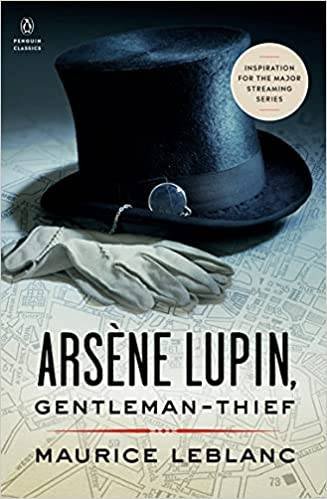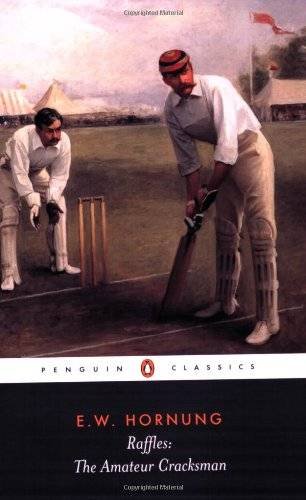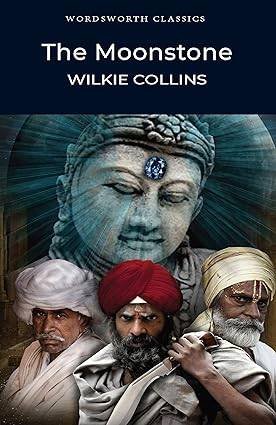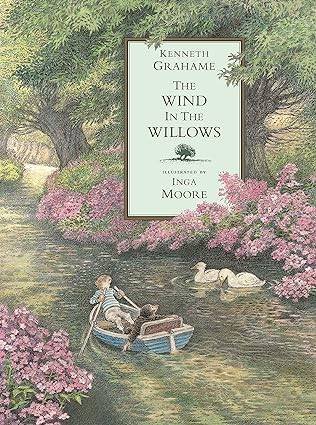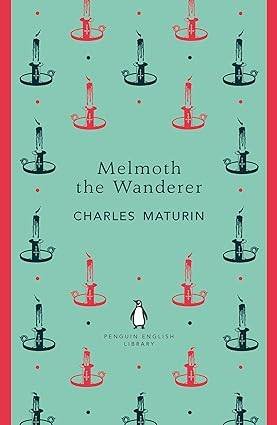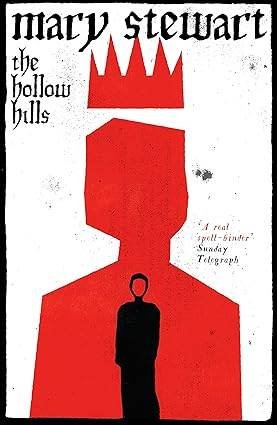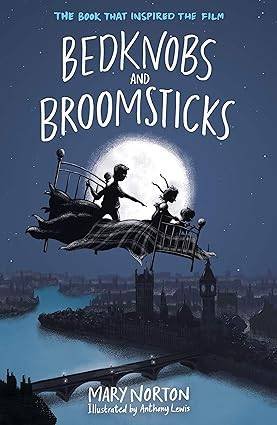Home » Book Reviews » Maurice LeBlanc » Arsene Lupin Gentleman-Thief by Maurice LeBlanc
Possible spoilers ahead
I’d not heard of this character before but was made aware of him from the Netflix series and then learnt that this was adapted from a series of books, and the books themselves were then strongly recommended to me by a friend. I actually picked this book up along with a Raffles book, as they sound intriguingly similar, both being about gentlemen thieves, and it will be interesting to see if there are similarities between the books and to judge which I prefer, and it may also be an interesting comparison with Lupin being written by a French author and Raffles being written by an English author. I was wondering which one came first and which therefore possibly influenced the other, and it seems that Raffles was written first. I have chosen to read Lupin first though, ahead of Raffles, as he was so highly recommended to me. I’m not usually a fan of short stories, but hopefully I will enjoy these.
The Arrest of Arsene Lupin is the first story. It’s clever in that the narrator is actually Lupin (although I did begin to suspect that), which is such a delicious sneaky thing for an author to do! The story was very enticing, with the ship receiving a telegram warning the passengers that Lupin was on board but the connection being lost just as the false name he was travelling under was about to be revealed, resulting in only the letter R being provided to the passengers! I was a bit surprised that Lupin was arrested in this first story, as it seems to potentially end things and also doesn’t show him as outwitting the police.
The second story is Arsene Lupin In Prison, and makes it seem like Lupin deliberately allowed himself to be arrested in order to ensure the crime in the second story could be successful, wow, I am loving the intricacies of this! And this second story is very clever too, with Lupin accessing a seemingly impregnable building and stealing the valuables stored within, which he achieves by getting a member of his team to pretend to be the famous detective, Ganimard, so that the potential victim begs this ‘detective’ to stay at the building in order to protect the valuables, and Lupin then steals them.
The Escape of Arsene Lupin is the third story, and is very clever yet again (I am using this word ‘clever’ in every story so far, I can see why this book was so highly recommended!). It seems that Lupin actually escaped prison two months earlier and substituted another man in his place, but then the extra clever twist is that it was actually Lupin in prison and in court all along, just disguised as the substitute, omg, this writing is brilliant! I also love Lupin laughing with Ganimard as he seems genuinely to relish his own tricks that he undertakes, and yet he is still respectful to Ganimard, as even though he has again put one over on him he doesn’t want Ganimard’s mistake of not identifying Lupin to be known to others and him be humiliated.
The fourth story is The Mysterious Railway Passenger. This is such a fun story, and interesting in that I feel it displays Lupin’s skill of thinking on his feet and acting swiftly in adverse conditions, whereas the other stories more displayed his skill of creating carefully detailed intricate plans with their results in the future, rather than immediately as in this story. It’s also an interesting story, as we are back to Lupin being the narrator again, as in the first story. I just love these stories, and I love Lupin, I love his gentlemanly manners, his politeness and respect for people, his sense of humour, his absolute professionalism, and that he is a stickler for details and planning.
The Queen’s Necklace is the next story, and I found this extremely interesting as it gives an insight into Lupin’s early childhood, as he cleverly stole this necklace when a child. His original name was Raoul, his mother was called Henriette and she married an artisan but the marriage caused a split within her family and she was left on her own when her husband died and had to seek employment with a rich school friend. Lupin, as a child, was annoyed at the patronising way his mother was treated by this friend, so secretly stole the necklace from the friend (without his mother’s knowledge), and then sent money from the proceeds of the necklace to his mother anonymously in the post. His mother died when he was about 12 or 13. He reveals all this to his mother’s friend in later years, appearing to her under an assumed name.
The sixth story is Sherlock Holmes Arrives Too Late, eeek, Sherlock Holmes turns up, I can hardly believe this! However, conveniently Lupin and Holmes aren’t in competition with each other, as Lupin solved the riddle and stole the valuables before Holmes turned up, and Holmes then quickly solved the riddle too. It was also an interesting story as Lupin’s love interest turned up again, Nellie, which resulted in Lupin feeling ashamed of his stealing and promising her he would return the stolen goods the following day, which he duly did. Hmmm, so we now know there is somebody in his life who can influence his actions, I wonder if this will occur again in later stories.
The next story is Flashes of Sunlight, and I found this really quite gripping, and different from the previous stories as Lupin is more of a detective than a thief. He interprets the code given by a captive using flashes, which is very neatly done with the flashes giving letters from the alphabet which spell a sentence however some words in the sentence are spelt incorrectly and the missing letters are the crucial ones that give the clue and the code to the safe. Lupin does offer to help the baddie escape in exchange for a share of the money and jewels he has, but the baddie tries to kill Lupin so Lupin then lets him be caught by the police. The story is told from a narrator who is a friend of Lupin’s and had asked Lupin to tell him a story of one of his escapades, so we have a story with an ‘I’ again but this ‘I’ is not Lupin this time.
The eighth story is The Wedding Ring and is quite intriguing and a little confusing too. Lupin appears as Horace Velmont again (as he did in the Sherlock Holmes story). He is summoned by a lady, Yvonne, who is being cruelly treated by her husband, and Lupin appears to know this lady well and to have been in love with her about six years previously, having then promised her that he would always be there to help her if she needed him. She obviously cared for him too, as she had his name (Horace Velmont) engraved inside her ring (but this lady doesn’t appear to be Nellie from the other stories though). Lupin is neither thief or detective in this story, but a chivalrous gentleman rescuing a lady. I find it fascinating how many different roles he has in these stories.
The next story is The Red Silk Scarf, and was really fun to read. Lupin is handed items that a murderer was trying to dispose of, and from these items he deduces the events of the crime in an amazingly clever way. He then gives this information to Ganimard, seemingly with no gain to himself but just in the interest of helping justice, and I loved the inventive way he gives this information to Ganimard as he first lures him to a meeting by having one of his friends apparently surreptitiously drop orange peel outside houses that another friend then marks with chalk, so all of this raises Ganimard’s suspicion and encourages him to follow the men and therefore to be led to where Lupin is waiting, it’s genius, I just love it! Lupin tells Ganimard that he is too busy to investigate the crime but urges Ganimard to do so. All Lupin’s deductions are correct, to Ganimard’s admiration but frustration, and Ganimard is praised for his cleverness when he appears to have made these deductions himself. However Ganimard can’t find the jewel that the girl was murdered for, but Lupin seems to have guessed that this would have been sewn into the red silk scarf around her neck so he holds onto the other half of the scarf, also guessing that Ganimard won’t be able to convict the murderer without the evidence of the half of the scarf that Lupin has, thereby ensuring that Ganimard eventually has to come to Lupin again and bring the half of the scarf which was around the girl’s neck, which Ganimard has no idea contains the jewel and which Lupin then pockets! Wow, it is so clever! Ganimard is angry and frustrated at Lupin in this story, and Lupin does rather emphasise his own superior cleverness and humiliates Ganimard in his own eyes, making him look like a fool to himself, but again he doesn’t make him look like a fool to anyone else, and Lupin had ensured that Ganimard gained fame and praise and promotion, and he also warned Ganimard that the murderer was left-handed therefore ensuring that Ganimard was able to guess when the murderer was reaching for his gun and take avoiding action to prevent being injured or killed. Lupin’s cleverness and deviousness is sublime in this story, I think it’s one of my favourites! I had presumed that this story was another one with him being a detective, but he surprised me at the end (as he surprised Ganimard too!) by being a thief!
The tenth story is Edith Swan-Neck, and oooh it’s so wonderfully clever and full of twists and took me completely by surprise, I had to re-read it immediately I reached the end! Lupin is actually Colonel Sparmiento, the owner of some tapestries, and is stealing these tapestries from himself in order to get the money from the insurance company. He had lived for six months as the Colonel in order to make this more believable, and had then pretended to commit suicide after stealing a body from the morgue of an unknown person who had died in a similar way to the way he pretended to commit suicide. He then came back into the house as the butler (!), so he could be around Ganimard during his investigations and learn how much he guessed. Wow, it’s so clever and detailed, I do love these stories, the twists are just so sublime! I like the way Lupin praises Ganimard for guessing the solution correctly (even though he guessed it too late), and I loved the fact that Ganimard was certain that Lupin would never do anything which resulted in someone’s death, so it shows again what a good-hearted man Lupin is. We are also introduced to Lupin’s foster-mother, Victoire, as she pretended to be the Colonel’s cook, as well as a lady called Sonia Kritchnoff (a Russian actress) who pretended to be Lupin’s wife and who does love Lupin.
On the Top of the Tower is the next story. Lupin is going by the name of Prince Serge Renine, and is enamoured of Hortense Daniel and so steps in to ensure her step-uncle returns her fortune to her, thereby saving her from following her original plan to escape her step-uncle by running away with a man she doesn’t love. Lupin does this by discovering the step-uncle had murdered his first wife and her supposed lover 20 years ago and had left their bodies at the top of a tower, and these bodies could only be viewed from the roof of a ruined house and from one certain place on this roof with a telescope. Hmmm, I didn’t feel this was quite such a strong story as it seemed a huge coincidence that Lupin just seemed to stumble across the fact of this earlier crime, and also discovered it exactly 20 years to the day that the crime was committed, and also that this discovery so well benefitted Hortense and benefitted Lupin too as it gained him Hortense’s gratitude. Did he somehow know about the crime beforehand? I was also slightly uncomfortable with his extremely determined and quite bullish attitude with Hortense, who he clearly admires, and he requests that as a reward for his efforts on her part she be his companion for seven more adventures which will end on 5th December as the clock strikes 8pm and tells her she can then at that point decide how to show her gratitude to him! He is a detective again in this story, rather than a thief, and I do love the variety of each story and the roles he plays. He also describes himself as ‘a lover of adventures’ in this story, which is quite an interesting interpretation of his character, I feel.
In the twelfth story, called Therese and Germaine, Lupin is again Renine and is acting as a detective rather than a thief. He is with Hortense and overhears a conversation between two siblings planning with a third person to murder this person’s spouse by pushing the spouse off a cliff. Lupin is not sure of the gender of the intended victim or the third person, but is determined to try and intervene to prevent this murder. However a man is then discovered murdered in a locked beach hut and it is a puzzle how he died, but Lupin deduces that his wife was the intended victim and that she had discovered this plot so had stabbed her husband in anger and self-defence, and the husband then felt remorseful for his part in planning to murder her so doesn’t reveal he has been stabbed and goes quickly to the shed to die alone in order to protect his wife and children. Lupin also tackles the sibling accomplices, seeing them as the more guilty ones for talking the husband into considering murdering his wife. Hmmm, again Lupin almost seems to have insider knowledge of the events, guessing immediately what has happened, but I liked that he completely sympathised with the wife and was determined to protect her.
The final story is At The Sign of The Mercury, and phew is another very involved and mysterious and enticing story! It is another Renine and Hortense story, where Lupin is again a detective rather than a thief. It begins very enticingly with Lupin telling Hortense that he has located the bracelet she lost many years ago and which she had tasked him with finding, though she had no idea when or how she had lost this and she had set him this task because she thought it was impossible for him to succeed. He now tells her that in order to claim the bracelet she needs to make a whiplash out of rushes, then buy a jet necklace and cut it short so it consists of 75 beads, wear a blue woollen gown and a red toque and a feather boa, go into a particular church at 4pm exactly and give the necklace to an old woman kneeling saying prayers who will count the beads and hand the necklace back to Hortense and take her to a particular house which Hortense is to enter and say to the man inside that she has come to fetch her bracelet. Wow, it all sounds beautifully mysterious! It all happens just as Lupin says, and it turns out this man’s wife was a previous maid of Hortense’s who had stolen the bracelet believing it would bring luck, the man and wife firmly believe that it has brought them luck and refuse to part with it at any price so Lupin tries to discover where the bracelet is located by things the man lets slip. Lupin successfully guesses the location of the bracelet and takes it without the man and wife knowing, so they continue to believe the luck is still with them. Lupin had previously searched the place and not found the bracelet but had found a confession the man had written about the theft which also detailed what Hortense was wearing on the day of the theft, therefore leading Lupin to make Hortense replicate this outfit in order to hopefully break the man. It is then 5th December, and Hortense seems more and more intimidated as 8pm approaches with Lupin waiting for his reward, she is daunted by his power to control her and doubts she could ever escape him but has also enjoyed the excitement of the adventures with him and his devotion to her and the good deeds he has done for others. The clock strikes 8pm, and she recognises this clock as the one from the ruined house where he first suggested this deal between them and which he has now brought there for this moment. She decides she doesn’t want to resist him and wants to take ‘the adventure of love, the most delightful, the most bewildering, the most adorable of all adventures’, and kisses him. Hmmm, I’m not sure if this is actually a romantic ending or if Lupin is being a bit too domineering here, although I guess at the time the book was written men were domineering and women were submissive and books represented women being swept off their feet by such domineering men. And I do like Lupin and he has a good heart, so hopefully Hortense will be happy with him.
I really really enjoyed these stories. They are such a fun and imaginative read and very very clever, I was heartily entertained by them all and fully intend to read more. I like that each story follows on slightly from the one before, usually I’m not a big fan of short stories because they are a story on their own and there is no link between them, but there are links between these so I liked that. I found it intriguing and unusual that the stories often switch between Lupin being the narrator and someone else being the narrator, ie often switching between ‘I’ and ‘he’. I guess the ‘I’ stories give us an insight into Lupin’s thinking at the time the story is unfolding, whereas in the ‘he’ ones we get to see his thinking after the event, but it’s an interesting and unusual style to switch between the two like this. There are such a range of stories too, taking in both Lupin’s childhood and his loves, and stories where he is the thief and stories where he is the detective. I also loved how much we learn about Lupin from these stories and I’m quite fascinated by the make-up of his character, he is indeed a confident and audacious person but although this sometimes seems to come close to him being arrogant I feel he just stops short of being arrogant by always being such a polite and considerate gentleman. He also appears vulnerable at times too, and I feel still remains slightly elusive to the reader as his character is not fully revealed. Throughout though, he seems to just be having fun and enjoying his life to the full, which I admire, it seems a good way to live life! I’m intrigued that we never get to know any of Lupin’s gang though, he obviously has a large number of colleagues who he uses but they are never part of the story, there is the occasional narrator who tells Lupin’s story and urges him to share his exploits but I presumed these were his friends rather than his colleagues, as otherwise they’d already know the details of his exploits having been involved in them with him.
I am heartened to see there are some full-length novels of Lupin too, so I will aim to read those, such as The Hollow Needle, and 813. And, as I say, I have Raffles waiting in the wings to be read so I am looking forward to that too, in order to compare them, the Raffles book I have is The Amateur Cracksman. And I also see on the wonderful Wikipedia that the character of Lupin (and indeed Raffles) was influenced by the character of Rocambole, written by Pierre Alexis Ponson du Terrail (wow, what a name!) so it would be interesting to read those books as well. And of course, I can’t help being tempted to re-read some Sherlock Holmes stories with him appearing in one of these Lupin stories, though I think I like Lupin more than Sherlock, they are similar in cleverness but Sherlock seems more arrogant and supercilious and keen to show off than Lupin does, which puts me off him slightly, though I heartily enjoy the Sherlock Holmes stories. Actually I am just now reflecting that Sherlock then seems the very opposite to those characteristics I have just accused him of (!) when I consider how he acts around women, him being almost in awe of Irene Adler yet with no intent to declare or act on his admiration of her, and Lupin seems more to fit the characteristics of arrogance and being keen to show off which I accused Sherlock of when I consider how he was with Hortense, tee hee! So perhaps a re-read of Sherlock’s Scandal in Bohemia where Irene Adler first appears, is a good reminder of this. I am also intrigued by the book Code Lupin by Michel Bussi where there is a code hidden in the Arsene Lupin books, that seems a fun idea, but arrrgh, I can only find it on Amazon in French, although other books by this author have been translated into English so hopefully Code Lupin will be also!
